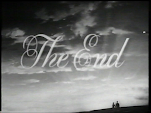
I have a new article over at Alternate Takes about the much maligned and misunderstood Sucker Punch. I think that there have been few more fascinating Hollywood blockbusters, so I was very pleased to be able to delve into this movie - both its strategies, and its reception. An extract from the piece:
-
Sucker Punch seems to me to be one of the most widely misunderstood films of recent years. By this I don’t just mean that it’s underrated - though in my opinion it is also that. I mean that an alarming number of commentators (i.e.: almost all) somehow seem to have failed to grasp its basic aims, and thus haven’t been able to assess it appropriately.
Other than the many complaints about the lack of narrative tension and rounded characters (neither of which, as I suggested in my short review, need necessarily be seen as significant problems), the main objections to the film have, of course, tended to be made on the grounds of its sexual politics. I want to address this matter head-on, looking at some recurring complaints about the movie’s approach to gender, and argue that most of them stem from a fundamental misperception of what the film is trying to do. I should also say that I’m certainly not going to argue that the film is unimpeachable - only that it’s far more interesting than it has usually been given credit for. My point is essentially that, before we call a film a failure, we first need at least to be sure what exactly it is failing at.
The thing that seems to drive people crazy about Sucker Punch is that it appears to offer “faux feminism” but in fact constitutes a “fantasia of misogyny”. Yet I think that the film, far from offering something like lipstick feminism, does in fact genuinely strive to be a rather forceful and angry feminist film, and comes closer to earning the title than most have acknowledged. The thing is: its attempts at feminism aren’t to be found in the areas where people have generally been looking. Stated briefly, this film is primarily about itself - that is, it’s about the problems involved in trying to find positive images for women within the kind of popular culture which it itself embodies. Of course, given that this strategy naturally involves irony and flirting with having-your-cake-and-eating-it, this is a difficult and dangerous game to play - and one that Sucker Punch is perhaps only half-successful in. But it is frankly bizarre that so few people seem to have noticed that such a game is even afoot - preferring to say that the movie’s problems stem from stupidity rather than over-cleverness (which would be closer to the mark). But this is to get ahead of ourselves...
-
Read the rest of the article here. Hope you enjoy!
.


